Ortho in the News
Latest Updates:
March 17, 2025
Our very own Dr. Andrew Jensen becomes the first doctor to use 3D-printed model for orthopedic surgery.
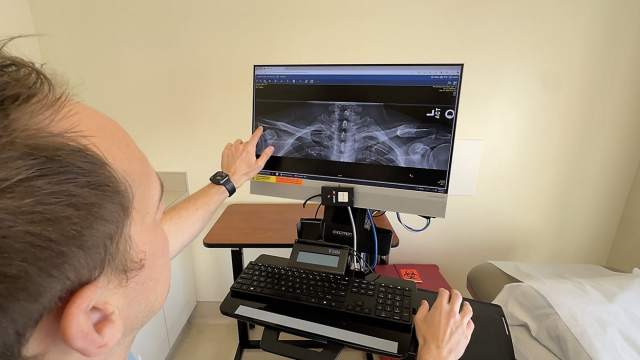
March 13, 2025
We are proud to have had a successful turnout at our Alumni Reception Event 2025 at the Hilton San Diego Bayfront at the American Academy of Orthopaedic Surgeons (AAOS) Conference.

September 28, 2024
We are proud to present our 3rd Annual Harlan C. Amstutz, M.D. Memorial Lectureship. The lectureship brought together arthroplasty surgeons from across California to hear from experts in the field. Pictured here is our lectureship host, Dr. Erik Zeegen, and our honorary guest speaker, Edwin Su, MD, Orthopedic Surgeon from NewYork-Presbyterian Hospital.

September 26, 2024
We are proud to share we held our Annual Sawbones Event for DGSOM medical students. We had over 50 students participate this year. A big shout out to Dr. Jeffcoat, Dr. Bowen, Dr. Cheung, Dr. Sheppard, Dr. Sassoon, and to our fellows and residents for their amazing teaching.

August 24, 2024
One of our resident physicians, Dr. Thomas Olson, has been honored with the 2024 "Excellence in Teaching with Humanism" award, a testament to his exceptional dedication to teaching and unwavering commitment to providing compassionate, patient-centered care.
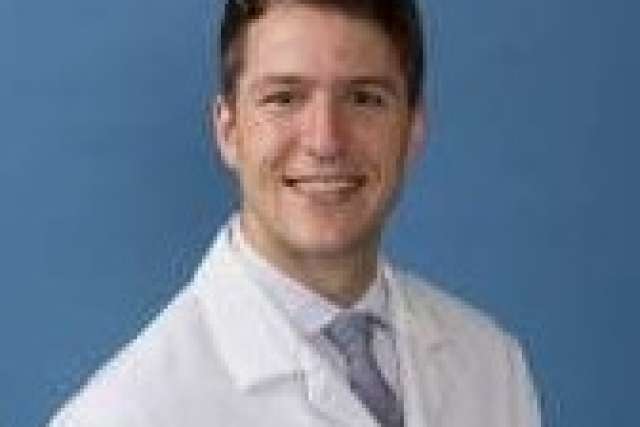

August 1, 2024
Dr. Thomas Kremen interviewed with Live Science where he shared what it's like to treat athletes at the Olympics and how he prepared himself for the Games.
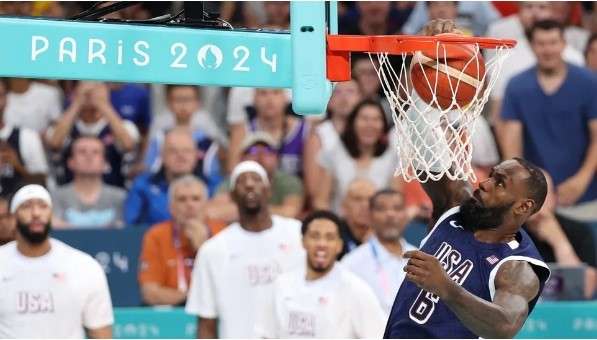
July 15, 2024
Dr. Adam Sassoon was featured on a special podcast episode of AAHKS Amplified, where he shared how he responds to this question often asked by his patients “Do I Need A Hip or Knee Replacement?”
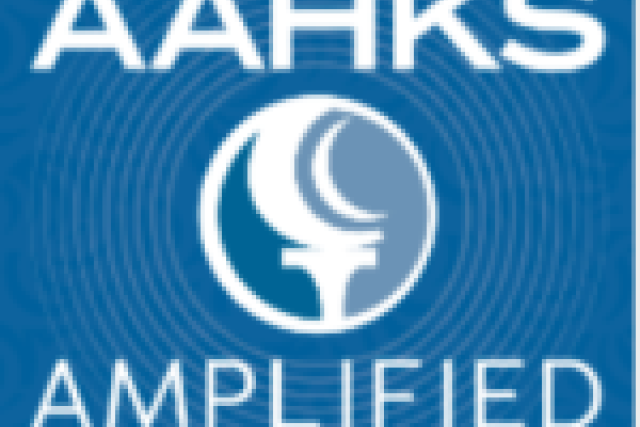
May 14, 2024
UCLA Ortho's Josh Goldman, MD shared his expert commentary on The New York Times article: Muscles in Knots? Here’s How to Loosen Them Up.
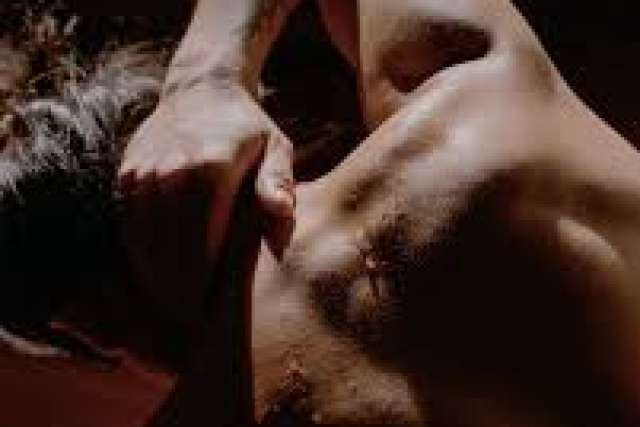
March 8, 2024
UCLA Ortho's Dr. Andy Jensen helped former Boston Marathon winner, Jacqueline Hansen, get back on track after shoulder replacement surgery.
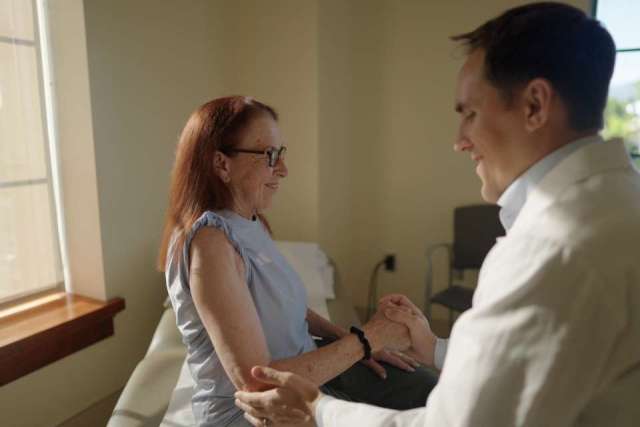
January 3, 2024
Our very own department Chair, Dr. Nicholas Bernthal, has teamed up with Duke University's Tatiana Segura, PhD and a team of UCLA engineers to develop a preventative solution for postoperative orthopedic surgical infections.
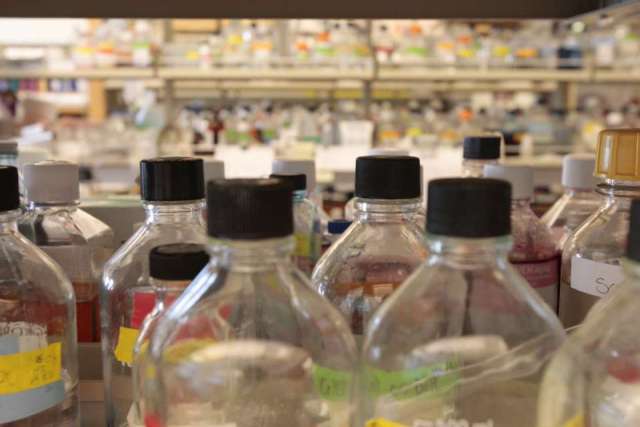
December 12, 2023
Is There a Growing Rate of Unnecessary Spine Surgery? UCLA Ortho's Dr. Arya N. Shamie speaks on the topic with (NASS) North American Spine Society.
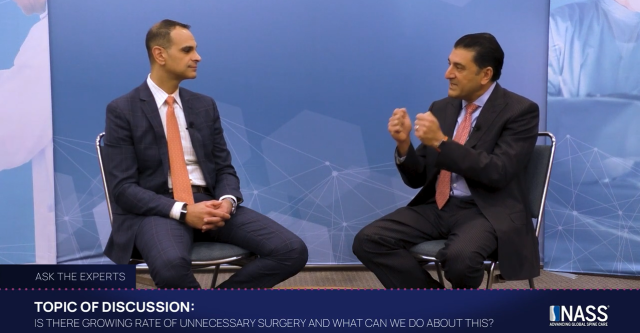
November 8, 2023
Our resident, Dr. Brendan Shi, received the 2023 Richard Kyle, MD, Orthopaedic Research and Education Foundation (OREF) National Resident Champion Award coming in at first place. Judges honored Dr. Shi at the OREF National Resident Research Symposium for his presentation titled “Bisphosphonate Chaperones Effectively Target the Enthesis without Impairing Soft Tissue-to-Bone Repair Integrity."
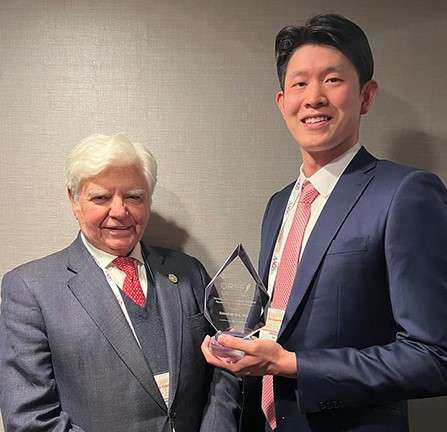
July 20, 2023
Why ACL injuries are more common in female athletes than male counterparts? Dr. Kristofer Jones provides his insight into this issue on PBS News Hour.
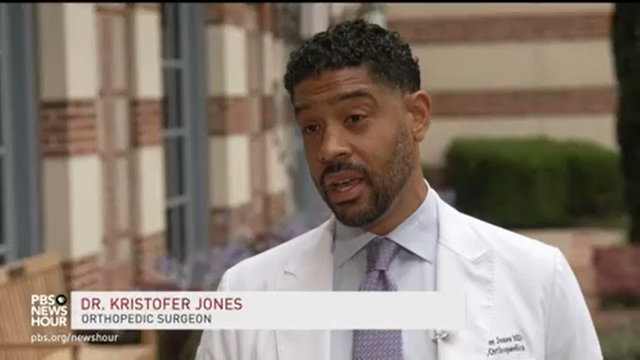
April 8, 2023
UCLA Ortho's Dr. Kristofer Jones provided his expert commentary on the latest in joint replacements, repairs and new procedures to Healthline. Keep up the great work Dr. Jones!
March 28, 2023
The New York Times for Kids has featured UCLA Ortho's Dr. Kristofer Jones for their "How I become..." column. A commonality shared with the likes of Lebron James! You can view other amazing features from the New York Times for Kids here.
March 15, 2023
Dr. Kristen Reiders' paper "Myoscaffolds reveal laminin scarring is detrimental for stem cell function while sarcospan induces compensatory fibrosis" has been accepted in Nature Regenerative Medicine. An amazing accomplishment!
March 4, 2023
UCLA's very own Dr. Don Young Park hosted the 2nd Annual Amplify Surgical Endoscopic Spine Symposium. The event featured presentations from experts in the field and an interactive workshop where participants were able to apply what they learned.

February 7, 2023
We are excited to share with you the Department of Orthopaedic Surgery Newsletter!
January 4, 2023
The James A. Rand Young Award 2022 was received by Dr. Rishi Trikha for his work on "Increased Revision Risk with Rotating Platform Bearings in Total Knee Arthroplasty".
October 25, 2022
Dr. Eric Johnson attended the German Conference of Orthopaedics and Traumatology (DKOU) 2022 as the guest speaker for the Harold Tscherne lecture.
October 19, 2022
Dr. Danielle Brown is the first recipient of the Cracchiolo/ Leventen Resident Research award in Orthopaedic Surgery. This award was established to honor the Drs. Cracchiolo and Leventen and their contributions to mentorship in the field.
August 4, 2022
Dr. Jennifer Beck is featured in an article by Health.com to discuss the potential lack of benefits from Vitamin D consumption.
July 7, 2022
Dr. Adam Sassoon goes above and beyond and does whatever it takes to aid his patients during their recovery process. Click here to read article.

April 8, 2022
Dr. Adam Sassoon gives his expert advice in the article "What to Expect After Knee Replacement Surgery: Treatments and Recovery" to US News and World Report.
January 7, 2022
UCLA Health surgeons Dr. Anthony Scaduto and Dr. Nicholas Bernthal performed a rare procedure on Efrain called rotationplasty, which involves flipping the foot and leg backward and making the ankle a functioning joint. LA Times covers the groundbreaking surgery and features our surgeons in the article "The miracles needed to help a boy walk on his own".
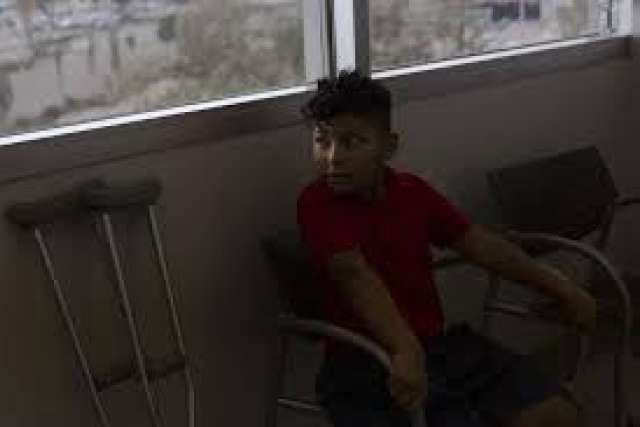
December 14, 2021
Dr. Elizabeth Lord appeared as a guest on the AO Spine Podcast. Listen to Elizabeth Lord speak on influences affecting healthcare provision.
November 10, 2021
Dr. Sharon Hame and Dr. Kodi Azari marched in the NYC Veterans’ Day 2021 parade for Operation Mend. Dr. Hame and Dr. Azari, in partnership with other UCLA Health providers, helped heal many veterans seeking care through Operation Mend. Department of Orthopaedic Surgery is proud to support and give back to those, who have served our country.

November 6, 2021
Dr. Elizabeth Lord attended the Global Spine Congress and discussed the "Gender Differences in Spine Pain and Pathology" in Paris, France.
November 1, 2021
American Orthopedic Society for Sports Medicine selected Dr. Thomas Kremen as its traveling fellow. The fellowship offers a unique four-week experience of visiting five sports medicine centers around the world to exchange knowledge of the treatment of sports medicine injuries.
October 27, 2021
Dr. Don Young Park had successfully performed the first L5-S1 dual portal endoscopic discectomy at UCLA on October 27, 2021. This is the first dual portal endoscopic surgery performed at an academic institution in California and one of the first in the US.
September 9, 2021
Dr. Adam Sassoon appointed to the Diversity Advisory Board (DAB) for American Association of Hip and Knee Surgeons (AAHKS). The goal of the Board is to increase diversity among AAHKS membership, build mentorship programs for under-represented students, residents, fellows, and attending surgeons, and prepare diverse leaders and members of AAHKS by providing a venue for academic and personal growth in total joint arthroplasty.
August 30, 2021
Dr. Rachel Thompson discusses removing anxiety from trips to the doctor for kids with cerebral palsy. Published in the UCLA Heath blog.
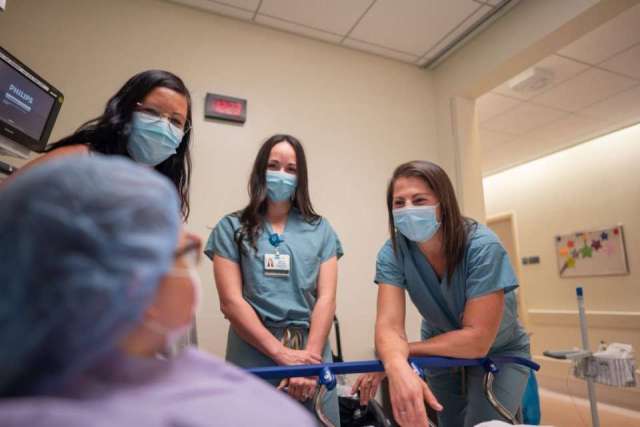
July 23, 2021
Dr. Thomas Kremen, chair of USA Swimming’s Sports Medicine and Science Committee, spent four weeks with the USA Olympic Swimming Team at the 2021 Tokyo Olympics. The Team won 30 medals, including 11 gold, 10 silver, and 9 bronze.
July 20, 2021
Dr. Nelson SooHoo and Dr. Akash Shah received a grant from the Oracle in Research program for the development of risk calculators to predict outcomes after hip and long bone fractures. The grant provides enhanced storage and computational resources to facilitate development of predictive models. The calculations will help predict major perioperative complication, re-operation, re-admission risks.
March 16, 2021
Our very own Dr. Nelson SooHoo moderated a conversation regarding innovations and renewed interest in the Lapidus procedure for bunion correction.
February 13, 2021
Bruno M. Peault, PhD. from UCLA's ortho, published Pericytes: Methods and Protocols which includes cutting-edge methods and protocols, provides step-by-step detail essential for reproducible results, contains key notes and implementation advice from the experts. ISBN: 978-1-0716-1055-8.
For more updates, visit our Instagram page @uclaorthopaedics.